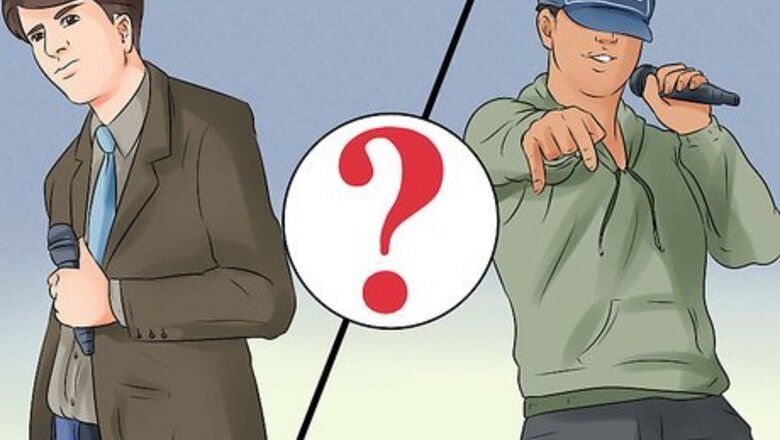
views
Developing Your Music

Find your musical talent. Do you want to be a pop singer? A classical musician? A rapper? The path will be a little different for every kind of recording artist. The first part of the journey is finding your specific talent for music. What are you good at, musically? Want to be a pop singer? It can be a tough road. If you're pretty good at violin, it might be quicker and easier to focus on those skills. Be the pop diva of classical violin. What are you most passionate about? Do you want to perform, and be the center of attention? Or do you just want to put your head down and play guitar in the background? Not everyone gets to be a Beyonce or a Justin Timberlake. But the drummers, programmers, and back-up singers are all recording artists too. If you want to work in the music industry as a recording artist, think about other kinds of roles.

Find your style. Whatever your talent, there are lots of ways to specialize and focus. There are big differences between opera singers and jazz singers, for example. Guitar players are an important part of jazz, metal, indie rock, and many different genres of music. To give yourself the best shot, pick one. What do you like to listen to? Who are your musical heroes? What kind of music do you imagine that you're playing, when you imagine a future as a recording artist? Also think about who you are and where you come from. How might you market yourself? It might be hard to be a gangster rapper if you're from the suburbs. That environment might give you lots of opportunities to focus on jazz, classical, or indie rock though.

Study your competition. Once you've discovered your talent and decided on a style you'd like to pursue, it's important to do some research. If you want to be a recording artist, study the other recording artists who perform in your chosen style. Listen closely to the music like it was your homework. Try to figure out what's good about a particular song, or style that you like. Why is one Rhianna single better than another? What is the difference between grindcore and death metal? Also look into the stories of the people who play it. What did your favorite guitar player do to get noticed? How did your heroes start? Check out interviews, documentaries, and liner notes as resources.
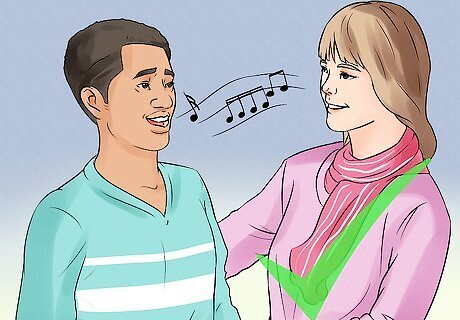
Find a good teacher. Pop stars almost always have teachers and coaches who help them at every step of the way. There are almost no professional musicians who have never received any kind of training or guidance whatsoever. If you want to be a metal singer, you might think it's unnecessary to hire a vocal coach, and you might be right. But it's still good to find someone that you can talk to and learn from. Find a more experienced metal singer in your town and pick up the tricks of the trade. Try to stick to contemporary musicians as role-model teachers. Jimi Hendrix might be your guitar hero, and it's great to learn from him as a player. But the music industry works a lot differently than it did in his day. Try to learn the business side from someone who knows it today.
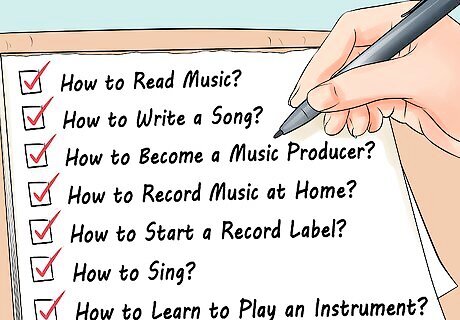
Diversify your musical talents. It's hard to make it as a recording artist, and talent can only take you so far. The more parts of the business that you're familiar with, the better your chances of making it work. Learn to be as good a performer as possible. Learn to produce and record music to make you a well-rounded commodity. Here are some helpful wikiHow articles to help you round out your abilities: How to Read Music How to Write a Song How to Become a Music Producer How to Record Music at Home How to Start a Record Label How to Sing How to Learn to Play an Instrument

Practice constantly. Being a recording artist doesn't happen to hobbyists. It's not something you do on the weekend, or in your spare time. If you want to be a recording artist professionally, you need to put your head down and practice, several hours a week. Learn fundamental scales and technique, as well as full songs that you're rehearsing. It's usually better to practice for a short time every day than to practice one day a week for several hours. It's much easier to build muscle memory and technique this way. If you play a classical instrument or sing, consider joining a school band, orchestra, or choir. These provide further instruction and opportunities. Playing and singing at church is also a common way of getting started.
Getting Noticed

Try to meet similar performers or bands. If you want to be a singer, you'll need some musicians to play with. If you want to be a rapper, you'll need a beat-maker and producer to collaborate with. Even if you want to be a solo guitar player, you'll need to meet people to play shows with and to network. Start going to shows in your town and introducing yourself. Meet people as much as you can, and tell them you're a musician. Advertise on Craigslist, or other local online venues. Find a message board for local musicians, or put up flyers in the record store or music store, old-school style.

Play with everyone. As you meet people, you may find that nobody's interested in playing the exact kind of music that you want to play. That can be ok. Try out different styles, to make you a more well-rounded player. This can be a great way to get your foot in the door and start playing. Worry about playing exactly what you want later. If you're a guitar player, it'll be a lot easier to make it as a recording artist if you can play lots of different styles. You'll always have a gig if you can switch between playing straight-up country twang one day and playing convincing metal riffs the next. Even if you're not sure you can play something, if you meet some people who are talented and interested in your abilities, give it a shot for a while. You might end up liking it.
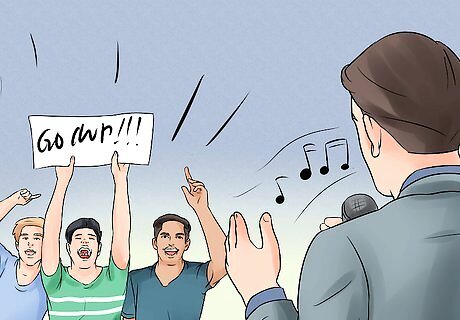
Play in front of people. Once you've met people to play with and have some tunes together, it's a good idea to play them for people to get feedback. Ask some music fans to watch you perform and get their honest feedback and criticism. Then Try to improve your sound and continue developing as an artist. Most of the time, hip-hop and electronic music will be recorded at home before playing live shows. Most rock bands will probably play live before doing any kind of recording. Play your music however works best. Start small, if you're going to play live. Lots of coffee shops and bars will offer open-mic nights, which are designed to give first-timers a crack at the stage. Almost everyone at an open-mic will be inexperienced, so it's an easy and understanding audience.
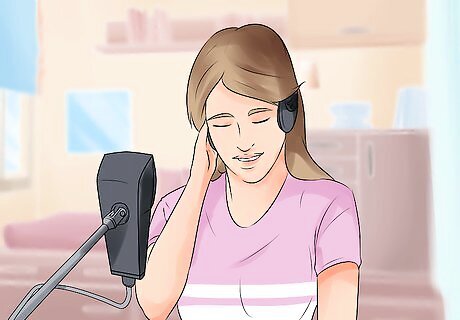
Make some home recordings. If you want to be a recording artist, it's good to get some experience recording music yourself and learning how to share your songs. Ableton, GarageBand, Fruity Loops and other types of cheap software are perfectly good for getting started. As you grow, you might want to invest in more complex (and expensive) recording software, including ProTools and Logic. These will give you more professional products for your sound. You don't necessarily need expensive gear to sound good. Even just recording a few acoustic songs on your built-in computer mic or your cellphone can sound good enough with a little reverb in GarageBand. Use what you've got and make it a part of your sound.
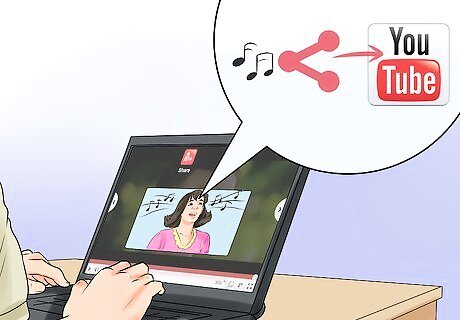
Share your music online. Chief Keef and A$AP Rocky got huge record deals based on the strength of a few YouTube clips. For some kinds of music, this should be one of the first steps. Electronic music, hip-hop, and vocal pop music will have an easier time getting recognized online than at a club or bar. Instead of worrying about playing "gigs" in your town, take it straight to the Internet. You're more likely to get noticed there. Start separate social networking pages for yourself as an artist, or for your group. Invite all of your own followers to follow that page for updates about gigs, new recordings, and other information about your music career. Bandcamp, Soundcloud, DatPiff, and BAND are all excellent choices that allow you to share high-quality sound files of your music and follow other bands, labels, and accounts for free.
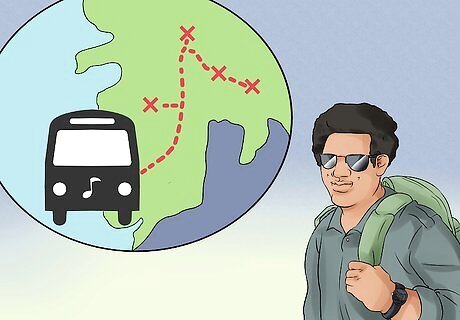
Start playing out regularly and organize a tour. As you rehearse, record, and share your music online, it's important to connect with fans in a live setting as well, for most styles of music. Try to grow your fanbase by playing regular gigs and organizing a tour when it's financially possible. Keep it local at first. Find a few local venues where you'll be able to play regular shows, and Try to get in tight with the management. Be reliable, consistent, and professional, and bring a crowd? They'll ask you back. Try and book a short tour when you're first starting out. World tours with shows in Iceland and Japan probably aren't feasible for your first tours. Keep it to the tri-state area, no more than a week or two at most.
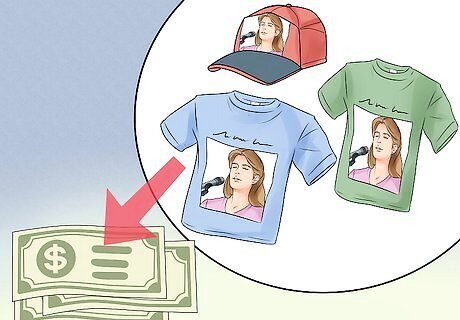
Start selling merchandise. A cool looking band t-shirt, a few trendy patches, and other music-related merchandise is like free advertising for your music career. Every time someone wears the t-shirt of your band, there's the possibility that a few more people might get interested and check them out. Merchandise is also an excellent way to make money and sustain a band, or to make a little money for recording and other costs associated with a solo career. If you've got cool-looking stuff to sell, you can make quite a bit of money at a single gig between merch, ticket sales, and guaranteed fees from the venue.
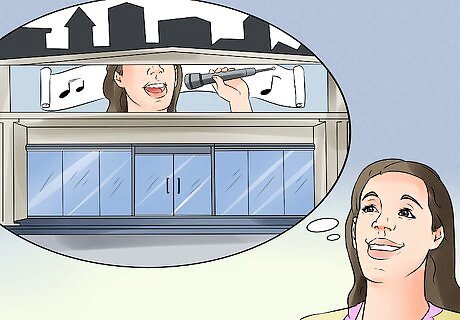
Consider taking your act to a bigger market. If you live in a small town, it's going to be tough to get noticed by a wider fan-base, whatever kind of music you play. Shows at the coffee shop around the corner are a great start. But think about whether or not it would benefit your music career by moving to a bigger city where there will be more opportunities. New York and Los Angeles are definitely places to get noticed, but it can be hard to crack into such a big scene. Consider moving to a more local big city first. Chicago or Minneapolis are good bets in the Midwest. Providence or Philadelphia are music towns on the East Coast. Nashville or Austin represent the South, and Portland or Seattle hold it down on the West Coast. Taylor Swift Taylor Swift, Singer & Businesswoman Grow your career by continuously setting goals. "As soon as I accomplish one goal, I replace it with another one. I try not to get too far ahead of myself. I just say to myself, 'All right, well, I'd like to headline a tour,' and then when I get there, we'll see what my next goal is."
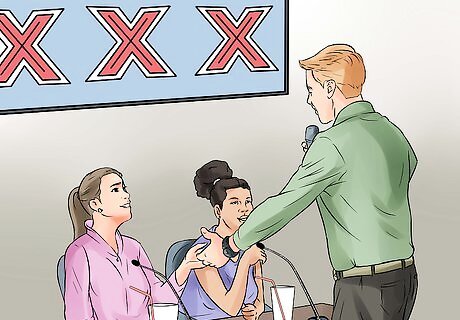
Try out for a reality show. One excellent shortcut to exposure is to get yourself on television. Even if you don't win, an appearance can be huge exposure. This can give talented people like you important industry contacts. Find those 15 minutes of fame and use them to further your ambitions. Talent-based performance shows like American Idol, X-Factor, The Voice, or others will often be a good way to get exposure to a mainstream audience as a potential recording artist. It's a good way to see if you have what it takes. MTV and other music-programs will sometimes host shows searching for the "next big star" of some particular style.
Getting a Record Deal
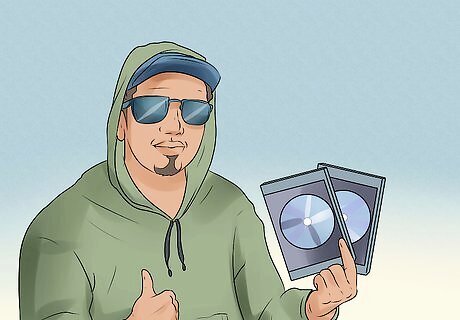
Record a professional demo. If you want to get signed to a label, you need to have a high-quality demo recording of your music to share. Normally, the best way to do this is online, so it's helpful to update those old Bandcamp and Soundcloud accounts to represent your best-sounding recordings of your highest-quality material. Most good demos are no more than a song or two. Record your hits, your absolute best material. No filler. Remember: Labels don't sign artists because they hope they'll record great music one day. They sign talent who already records great music, then provide that artist with a push that they hope to profit from.
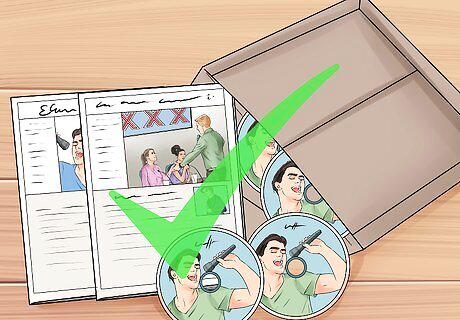
Prepare a press package. Press packages are used to accompany demo tapes. The press package should explain who you are, what you do, and where you come from in a concise way. A basic press package should involve the following items: A short bio, explaining who you are Photos Newspaper write-ups Interviews Reviews Quotes or endorsements from other artists

Think about your image. The quality of your music is the most important part of a career in the music industry. But, talent won't take you all the way. To be successful, having a look that matches your sound is usually an important consideration in marketing a particular artist. Use your sound to influence your look, and vice versa. If you look like a burly woodsman, it might be a good idea to emphasize the gruffer, more folk-like elements of your sound. If you're a clean-cut city-dweller, on the other hand, it might be a good idea to get some dirt under your fingernails and grow a beard if you want to be in a successful bluegrass band.
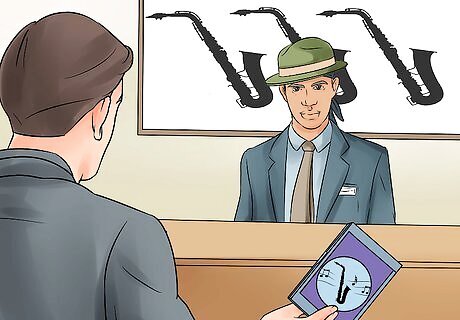
Send your material to labels that support your style of music. Who put out your favorite artists' records? Where did they get their start? Who do you know at particular labels that might be willing to give your band a shot at a recording? Pick a few labels you think you might have a shot with and send them their A and R department your demo and press pack. Major labels like Warner Brothers, Virgin, and Sony BMG have a lot of money to throw around at established acts, but they typically only look at groups that have big potential to make money. Many of the acts will have multiple albums or industry success under their belts already. Independent labels might have less money, but are more willing to give you control over your product. There's typically more freedom with an indie label. Some people think the more labels you send you material out to, the better chance you'll have of getting signed. It's important to be familiar with the labels you're contacting. Never engage in a carpet-bombing campaign. If you're sending your demo of folk tunes to metal labels, you're wasting everyone's time.

Play a label showcase. An alternative way of getting noticed and potentially signed by a record label is to Try to find out about industry showcases and festivals, or travel to one for a gig. You can typically apply to showcases by submitting materials, and then play and network when you're there. For many acts, this is the best way to get actual face-time with talent scouts. South by Southwest in Austin, TX is one of the best places for up-start DIY acts to get noticed by the music industry, but any type of music festival is huge exposure for a band. Even if the stage you play on is the smallest one, it's great to be able to say that your name was on the bill with other big acts.

Consider putting out your own music. Increasingly, very popular acts are going independent. If you can sell your music directly to your fans with nobody in the middle, why mess around with a record label at all? Consider selling your own music online and covering the fees associated with it yourself. Record contracts include guarantees and advances, which don't require you to sell a lot. If you've got a single you know will sell a million copies, you stand to make a lot of money from iTunes alone, but if you're not sure you can deliver, a contract offers you more security.

Consider hiring a manager. As you gain exposure and access to the recording industry, it can get pretty complicated to handle on your own. To make sure you don't get locked into any deals that are unfavorable, it's usually smart business to hire a manager that will handle the business side of your career, and possibly an agent to help you handle the marketing and public relations side of your career.

















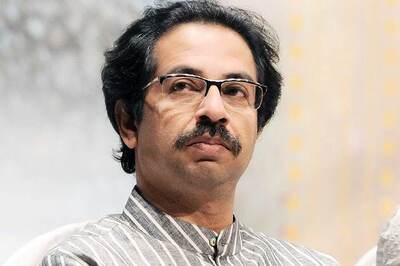


Comments
0 comment